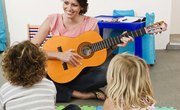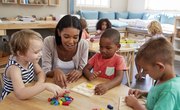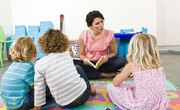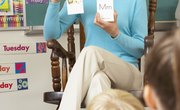Teaching special needs preschool students can be a challenging but rewarding career. When working with these children, schedules have to be juggled to fit in group and individual time. Teachers should have basic knowledge of different types of disabilities, both cognitive and physical. The more a teacher knows about the disabilities of the children she will be teaching, the better prepared she can be.
Teaching Reading Skills
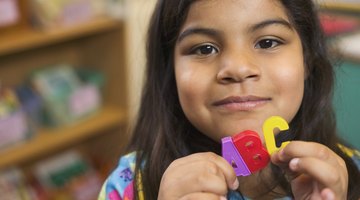
Every teacher, even those working with preschoolers, should have a time during the day to teach pre-reading skills. Sounds of the letters should be the main focus over teaching the letter names. Once students begin to recognize sounds, it will be easier for them to identify the letters. Hands-on activities that teach the alphabet letters and sounds can be used with many special needs students. Expose them to books, even if they cannot read yet. Reading age-appropriate stories to special needs students can help enhance their language skills. Songs are also a good choice for teaching the alphabet and letter sounds to special needs preschoolers.
Incorporating Math

Teaching math skills to special needs students should focus on hands-on activities involving numbers, colors, shapes and counting. Working with puzzles, crayons, counting books and pre-made materials will provide students with exposure to basic math skills in the classroom. These should be teacher-guided learning activities rather than leaving students on their own to play.
Teaching Functional Skills
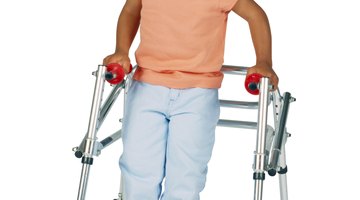
Special needs preschoolers will need guidance in the area of functional skills. The preschool teacher should incorporate these skills in activities throughout the day. Some of these life skills include toilet training, drinking, eating and washing the hands and face. Gross motor skills can be a part of the curriculum and includes the use of assistive devices -- such as hearing aids, walkers and communication notebooks -- and skills that help with recreational activities such as games, dancing and learning motions to songs. The curriculum should also include fine motor skills training such as cutting with scissors, tracing and cutting lines, coloring within the lines, using a fork and spoon during lunch and using a cup without spilling the contents.
Social Skills
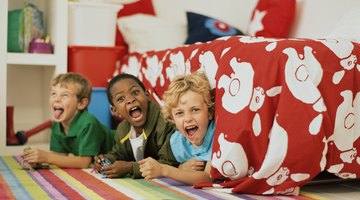
Social skills should also be a daily part of the curriculum for special needs preschoolers. Play centers can be used to foster social interaction among handicapped students and their peers. Students placed in a small play area tend to communicate with one another better than being placed in a large play area. Place various props in the play area such as dolls, doll houses, a play kitchen and kitchen supplies, slides, balls and large boxes. Dramatic play such as the use of puppets and stuffed animals can also encourage social interaction.
Placing special needs students with their general education peers gives the disabled students the opportunity to mimic good social skills. Positive reinforcement such as stickers and prizes can also encourage students to continue exhibiting appropriate social skills.
Related Articles
References
Resources
Writer Bio
Jeanette Hayden holds an Associate of Arts in social science and a Bachelor of Science and certification in education of the hearing impaired and elementary education. She also has diplomas in medical transcription and medical office assistant. She has submitted and published articles for a number of websites.




